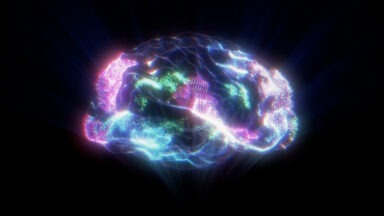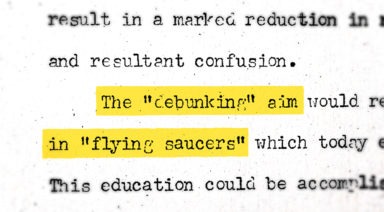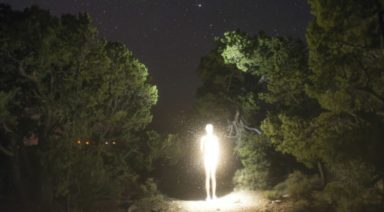Soul Contracts Under Review
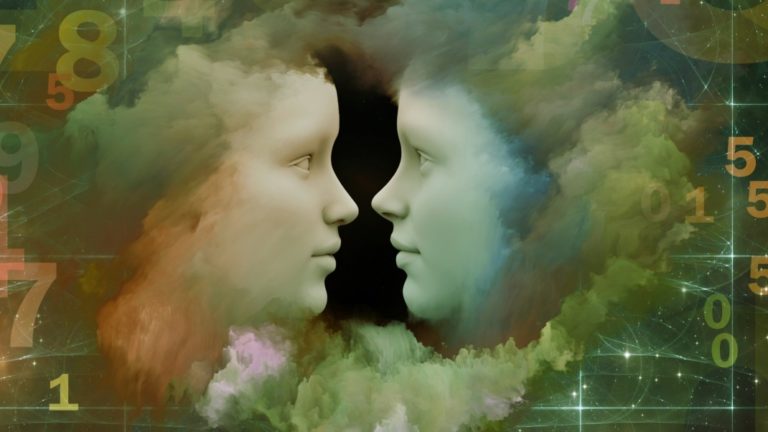
Some years ago, I attended a gathering of metaphysicians. I have a tendency to keep my mouth shut, as I believe discretion is the better part of valor and I have a tendency to open my big mouth when I shouldn’t. We ended up sitting around a table drinking coffee, discussing the Universe and whatever else caught our fancy. The subject of a local tragedy came up, one in which there were several victims and the conversation became serious. The lady sitting next to me, a sweet person whom I like very much, eventually chirped that everything was fine, because both perpetrators and victims, as well as their families, had all agreed to be a part of the disaster before birth.
Before I could think, I asked, “What?” I was told later that I’d asked that question much too loudly. The lady turned to me, put her hand on my arm, tilted her head a little and gave me a sad smile, as if I were the only one in the room who didn’t completely understand life. She told me about a pre-incarnation meeting and how the tragic outcome was not only expected on some level, but a necessary part of their experience and that of the world’s. I became aware that I was glaring at her hand on my arm and so did everybody else. Fearing the loss of a finger, she quickly pulled her hand back and waited for me to say something. The table was silent for quite a while, but I didn’t feel like talking. I’d known one of the victims in the useless, senseless act of stupidity and I was feeling too much anger and pain to say a word without launching into a tirade. That was my first introduction to Soul Contracts.
Just Because You Don’t Remember It Doesn’t Mean It Didn’t Happen
I’ve often thought about Soul Contracts since then. It no longer raises my blood pressure and although I may not agree with it, I clearly see the benefit of its presence as a philosophy in some people’s lives. I would never say that the idea of a Soul Contract is definitively false. It would take more arrogance than I can manage to muster at my age to be that sure of anything. The truth is, I don’t remember what happened to me before this incarnation, the reason covered quite adequately by the social contract theory. Then again, just because they say I shouldn’t be able to remember it and I don’t, doesn’t mean that it happened.
To be perfectly honest, I have a tendency not to put too much thought into subjects that are highly conjectural. That’s not to say that I don’t enjoy a good debate or healthy investigation into the unknown, but some topics don’t do much to deliver what I consider to be truthfulness into my life. If I did agree to a contract before this incarnation started, then I’ll either fulfill it, or screw it up. Either way, there’s no direct action that I can take to ensure a better and more productive life based upon that knowledge. For example, if a pre-incarnation contract includes becoming a Yo-Yo Pro to learn about the basic principles of physics and entertain others, will I have a natural interest in yo-yos because of that fact, or will I pick it up as a kid and decide that it’s something that I wish to master? An argument can be made either way, but to me it simply doesn’t matter. Whether becoming a Yo-Yo Pro was part of a pre-birth agreement or not, it doesn’t change the fact that I was a Pro once and therefore, in my opinion, makes the reason irrelevant.
I’m also bothered by the formalized religious backdrop of the Soul Contract theory. I see it as an interesting mixture of reincarnation, Dharma, Karma. a strong Christian leaning and a divine presence, with whom we enter into some sort of agreement. Some call this presence God, others call them angels and some the Universe. It’s not that I don’t believe in all of these; it’s that it borrows dogma from different sources and wraps it up in a comfortable bow. There’s nothing wrong with that, but it isn’t for me.
Of course, that falls within the subject of personal beliefs. I encourage everyone to embrace their belief systems wholeheartedly, without fear of ridicule or retribution. I see nothing wrong with fully believing in something that makes you feel good, as long as it doesn’t injure anyone else, or you.
Belief in a Soul Contract can bring great comfort and give sense to this hectic, stressed out world of ours.
It’s almost impossible to understand how some things work, especially when they seem to break down constantly. The lack of humanity on this planet is astounding. People do bad things to each other every day. There are those who follow the rules to the letter and still experience great heartache. Children’s hospitals are filled to capacity with innocents who endure great hardships. A brief glance backward in history will provide landscapes so bleak, that any attempt to explain them boggles the imagination.
Whether you believe or not, I consider the Soul Contract to be a concept worthy of researching and perhaps even fully accepting, mainly because it can give peace of mind. The philosophy isn’t for everybody, including me, but there are many who can benefit from its simple, but comfortable explanation of why things happen the way they do. It’s a benign, accepting way of looking at our lives and making sense out of the nonsensical. It certainly is no more unbelievable than some of the precepts put forth by some religions or spiritual beliefs. As long as it doesn’t keep an individual from being proactive in life, I don’t see the harm. It’s only when we believe we understand this contract fully, that we may run into problems regarding action, or inaction, in a specific situation. I’ve met more than one person who held a specific certainty about some aspect of their life and because of that mono-focus, lost out on amazing possibilities.
Finding a balance is the essence of everything and this is no exception.
I genuinely believe that even if you don’t believe in the concept of a Soul Contract, there are wonderful benefits to be taken from it.
Seven Soul Contract Ideas Worth Embracing
There’s a Lesson in Everything
We live our lives aspiring to achieve certain goals, but sometimes those aspirations fail. We’re here to learn and benefit, even by those things that don’t necessarily seem advantageous. There may not be a reason for everything that happens, but there is definitely a lesson to be learned, no matter what the situation is. Searching for that lesson often leads to a deeper and more profound sense of being and inner truth.
You Agreed to It, So Don’t Blame and Just Get on With Life
This is based upon my own inference of the doctrine of Soul Contracts. Freedom of will is written into this philosophy, something I admire. Too much time is spent in finger-pointing and finding someone to blame. This is all the more destructive when we blame ourselves. Whether it was agreed to or not is irrelevant. Time is precious, so deal with it and move forward in your life, lessons and all.
We All Have a Personal Relationship With God
How could there be anything wrong with this doctrine?
None of Us Is Alone
According to the theory of Soul Contracts, we reunite with those of us on similar paths for unlimited lifetimes, or until our specific duties have been fulfilled. This brings family members back together, as well as old friends and even antagonists. The idea of being connected to the people we know in our lives, over and over again, almost like an ensemble cast in a repertory company doesn’t bother me a bit. It gives us an opportunity to consider how we might change things the next time around. In turn, this can help us to deal with the people in our lives in the moment. The truth is that we are all connected, far beyond the acquaintances and family members we have in our lives.
Experiencing Your Life is Vital
The very thought that we made an agreement, a contract, before we incarnated gives a sense of self-consciousness and awareness that most people don’t carry with them on a daily basis. This simple realization can help to motivate us to be active in our own existence and not to allow the world around us to crush our spirit or goals. Thoughts always lead to actions, in one form or another.
Your Life is Important
Every life is important. This may be the most vital of all the thoughts that arise when I think of a Soul Contract. If we can truly believe that every person, every creature on this planet, everything that happens and exists is a part of the divine plan of which we are part, then we must have immense respect for the lives, thoughts and existence of others. If we truly believe this idea, it becomes apparent that we cannot ridicule or injure others, for they are as much a part of the plan as we are. Universal respect for each other is the foundation to a potential for peace.
Not Everything in Your Life Will Make Sense
Acceptance of this fact will change how you live.
Whether you believe in the philosophy of Soul Contracts or not, there’s much to be taken from it that can fulfill the heart and make life easier to cope with, regardless of your beliefs.
I wish you all peace and love.
Can This Brainwave Study Explain What Happens to Consciousness When We Die?
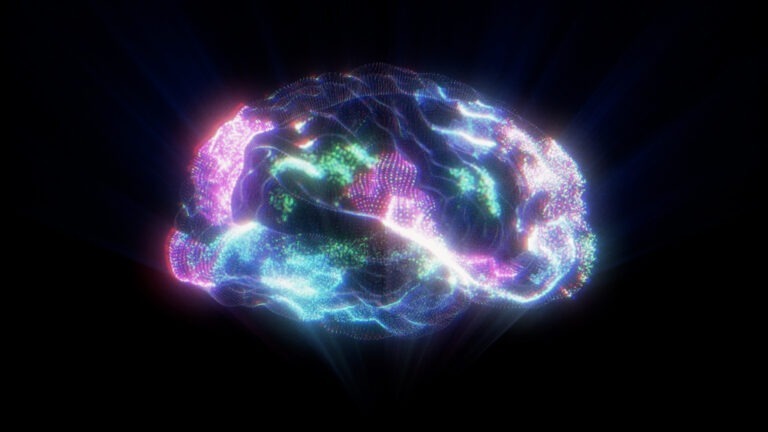
A new study records the brain waves of a dying person in detail for the very first time. Could the findings explain what happens in our transition into death?
While there is plenty of anecdotal evidence from people who have had Near-death Experiences or NDEs, there is little to no hard scientific data on what happens in the brain as people are dying.
Now, researchers who recorded 15 minutes of brain wave activity in a dying man, are speculating that the findings may explain the phenomenon of life recall or review that many near-death experiencers report.
Dr. Eben Alexander is a neurosurgeon who, in 2008, experienced an NDE as he lay in a coma caused by a serious case of viral meningitis. After a miraculous recovery, he went on to write about the experience in several best-selling books.
“There’s a tremendous amount of evidence that, at the end of life, our consciousness does not just disappear as one might assume if the brain created consciousness,” Alexander said. “But in fact, our consciousness seems to expand in dramatic ways, and I think this is where a deeper understanding of NDEs is crucial for us to understand the mind-brain relationship and the nature of consciousness itself.”
To Alexander, while the study is a step in the right direction towards understanding what happens when we die, it is fraught with some misunderstandings.
“Now, there are many problems with this study and the main thing I’ll point out here is, first of all, do not confuse correlation with causality,” Alexander said.
“This is a common mistake in neuroscience and it results from the unproven assumption, and in fact, I would say a disproven assumption, that the brain is creating consciousness, and therefore, to find any change in phenomenal consciousness we must look for a neural correlate; some physiologic change in the brain. And modern studies just show that that reasoning is false, there’s more to it than just what’s going on in the brain.”



